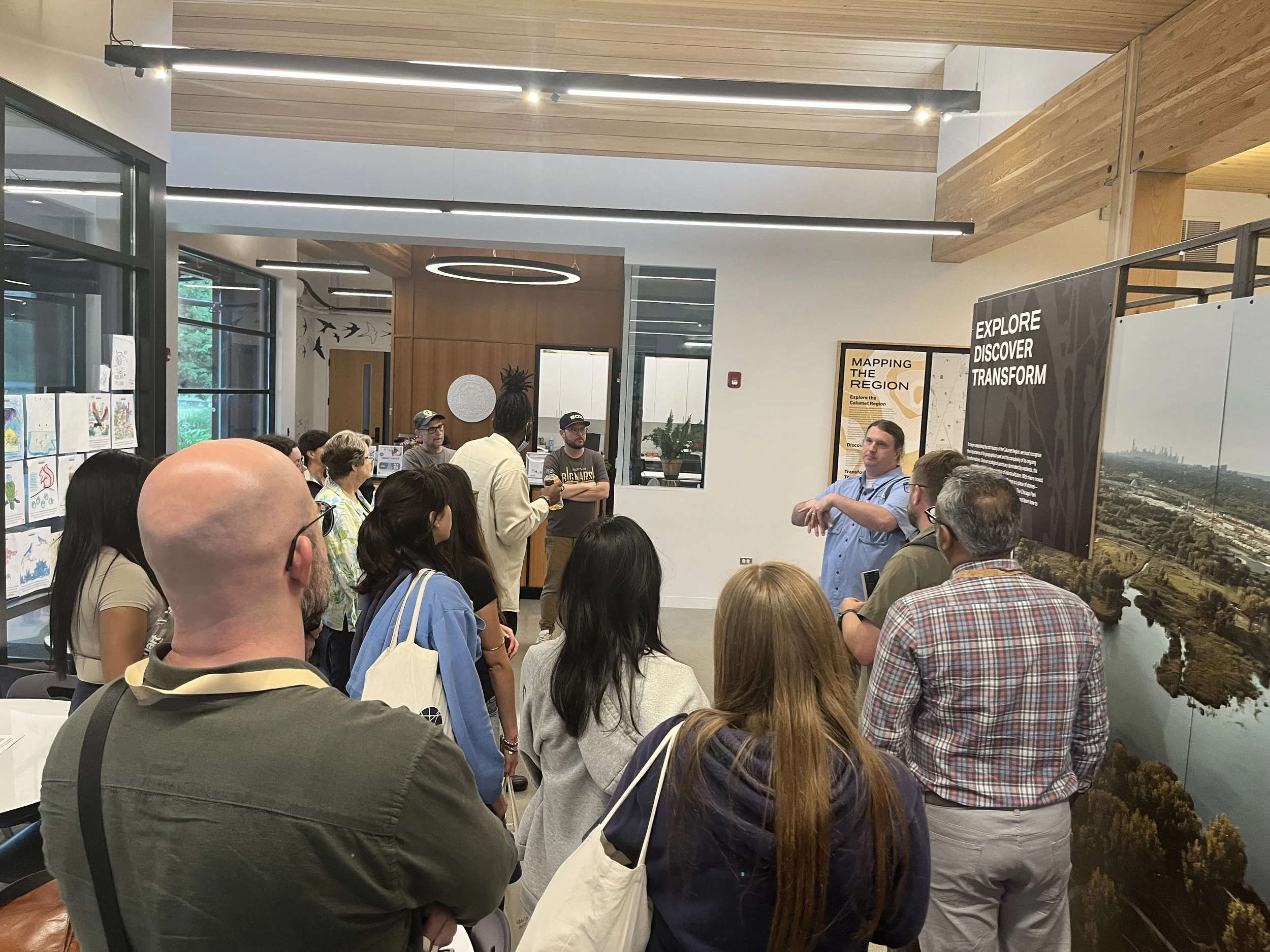Elevating Chicago as a Global Conservation Hub
Shedd Aquarium research scientist Kentaro Inoue (left) examines a mussel. Freshwater mussels are among the most imperiled group of organisms in the world. (Photo credit: ©Shedd Aquarium/Chuck Knapp)
Morton Arboretum and Shedd Aquarium bring global conservation power to Chicago in a new international partnership
Only eleven institutions in the world are recognized globally as official “Centers for Species Survival” by the International Union for Conservation of Nature (IUCN)—and now, two of them are in Chicago.
The IUCN Species Survival Commission announced the new partnership with Chicago’s Shedd Aquarium and The Morton Arboretum last March, immediately elevating the two institutions’ international profiles and opening up new opportunities for local and global collaboration. The Shedd has been named as the first dedicated Center for Species Survival: Freshwater and the Arboretum as the first Center for Species Survival: Trees.
“Collaboration is critical for the conservation of our planet’s biodiversity,” said Professor Jon Paul Rodríguez, IUCN SSC Chair, in a press release. “Shedd’s deep understanding of freshwater conservation and The Morton Arboretum’s demonstrated success leading the conservation of trees will allow our global network to expand our shared impact to new geographic areas and add new species of animals, fungi and plants to assess, plan and act.”
The “assess, plan and act” strategy is key to IUCN’s conservation approach. As a first step, both Shedd and Morton will focus their efforts on identifying species at risk of extinction–a designation that is key to accessing additional funding earmarked for that more specific level of protection–and determining the most pressing threats.
With the IUCN’s new backing, the Arboretum will ramp up collaborations with international partners to protect threatened trees–especially oaks in southeast Asia and Mesoamerica–starting with a careful assessment of threats and needs.
“Trees are the scaffolding of forest ecosystems, supporting much of the world’s biodiversity and the livelihoods of millions of people,” said Silvia Alvarez-Clare, Ph.D., director of global tree conservation at The Morton Arboretum. Of the world’s 60,000 tree species, 17,500 (nearly 30%) are threatened with extinction—more than double the combined number of globally threatened mammals, birds, reptiles, and amphibians.
The Shedd’s efforts will focus on identifying at-risk freshwater species, such as freshwater mussels, in Central America and developing targeted conservation plans.
“Freshwater mussels are critically important for the ecosystem no matter where you are. They filter the water, they keep it relatively clean for humans, stabilize river beds, and prevent erosion. They also serve as food sources for other mammals and are bioindicators for ecosystem health,” said Chuck Knapp, Ph.D., vice president of conservation research at Shedd Aquarium. “Unfortunately, we’ve been losing them due to habitat degradation. By understanding where these mussels are and learning more about different species and threats, we can get an idea of threats to the whole ecosystem. They are used as a baseline.”
Since the IUCN partnership became official, the two Chicago centers have already been hard at work making a plan to advance critical biodiversity projects in Central American hotspots.
“There’s a huge need for more capacity for conservation in the Global South,” said Alvarez-Clare. “We have more capacity and resources here, but the biodiversity is there–as is the species loss at the highest rate.”
Alvarez-Clare, who herself hails from Costa Rica, also emphasized the importance of a carefully, sensitively planned partnership between “shovel-ready” institutions with capacity and staff, like the Arboretum and Aquarium, and the local communities with intimate knowledge of the land and culture.
“We don’t want to parachute in,” she said. “We are working closely with local partners and are respectful of local knowledge.”
To that end, the new partnership, with support from Walder Foundation, will also create new education and career pathways for local scientists in Central America.
“A large portion of this grant is allocated toward training, predominantly for stakeholders in the local regions,” said Knapp. “We’ll be supporting two graduate students in the region to get technical training in freshwater science, including one that we’ve already identified at the University of Costa Rica.” That student will be personally trained by a Shedd freshwater biologist, both locally in Costa Rica as well as on-site at the Shedd Aquarium and at Chicago’s Field Museum–another partnership made possible by the strengthening of the Chicago-area conservation network.
The second student is still being identified–but the idea, Knapp says, is “to have two academically trained freshwater scientists in the region who can then be a cohort to each other.”
The Arboretum and Aquarium also both look forward to advancing cross-disciplinary research and increasing capacity-building expertise and opportunities. Together, the two institutions welcome over three million visitors in Chicago each year, providing exceptional opportunities to raise awareness about the importance of trees and freshwater ecosystems–and how they are, ultimately, inextricable parts of one whole.
Get more stories like this delivered to your inbox.
Sign up with your email address to receive news and updates.










